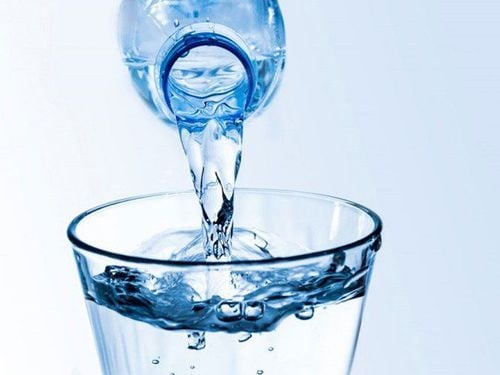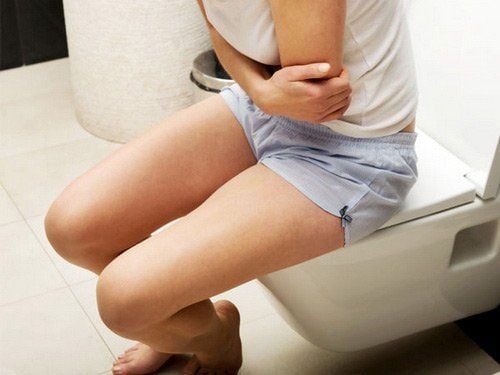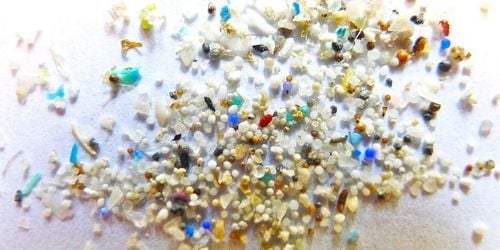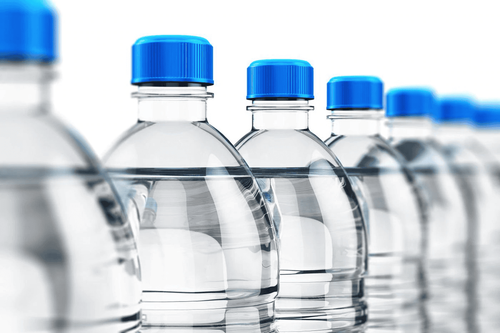This is an automatically translated article.
Mineral water is usually water that comes from natural underground reservoirs and springs. This type of water can contain many essential minerals, including calcium, magnesium and sodium. Therefore, many people believe that drinking mineral water can bring some health benefits.1. What is mineral water?
Unlike other types of water, mineral water is bottled at the source, containing natural minerals and many other trace elements. According to the Food and Drug Administration (FDA), mineral water has no less than 250 parts per million (ppm) of total dissolved solids — or minerals and trace elements naturally occurring from the water source. The addition of minerals to the water is not allowed.
Unlike club soda and seltzer, mineral water may include natural gas, but the addition or removal of carbon dioxide (CO2) during bottling is permitted. Mineral water can also be treated to remove potentially harmful substances such as arsenic. As the name implies, mineral water can contain large amounts of minerals and other natural compounds, including magnesium, calcium, bicarbonate, sodium, sulfates, chlorides, and fluoride.

Bổ sung nước khoáng mỗi ngày đem lại nhiều lợi ích về sức khỏe
The types of microelements and mineral content depend on where the water comes from. As a result, the health benefits and taste of mineral waters can vary widely. Compared to regular bottled water, mineral water contains a higher mineral content.
2. Health benefits of mineral water
2.1 Supports bone health
Getting enough calcium is important for the development and maintenance of bone health at all stages of life. In addition to calcium, bicarbonate and magnesium are two types of compounds found in mineral water that can support strong bones.
Mineral water has been shown to be a good source of calcium. In fact, studies have shown that the human body can effectively absorb calcium from mineral water, even better than calcium from milk.
A study in 255 postmenopausal women found that those who regularly drank calcium-rich mineral water had significantly higher bone density than those who drank low-calcium water.
2.2 Lowering blood pressure
Research shows that a lack of calcium and magnesium in the body is a contributing cause of high blood pressure leading to an increased incidence of heart disease. A new study has demonstrated a link between drinking mineral water rich in magnesium and calcium and a significant decrease in blood pressure.
A 4-week study in 70 adults with high blood pressure found that drinking at least 1 liter of natural mineral water per day significantly reduced blood pressure readings. However, a review of 20 studies on the effects of mineral water on blood pressure readings found inconsistent results. Therefore, more medical studies are needed to prove the relationship between mineral water supplementation and blood pressure readings.

Lượng canxi trong nước khoáng giúp giảm huyết áp
2.3 Improve heart health
Carbonated mineral water is said to have the ability to protect and prevent heart disease.
Two studies in postmenopausal women showed that drinking 0.5 to 1 liter of carbonated mineral water per day significantly reduced levels of triglycerides and bad LDL cholesterol, while increasing levels of good cholesterol HDL.
Another study found a link between increased magnesium intake and a decrease in mortality from heart disease. Therefore, the magnesium content in carbonated mineral water can help improve heart health. However, longer-term studies are needed to determine the effects of drinking mineral water on heart health.
2.4 Improve constipation
Magnesium-rich mineral water can also help prevent and treat constipation.
Research has shown that magnesium has the effect of regulating the amount of water entering the intestines, helping to relax the intestinal muscles. This makes the stool softer and easier to pass. A 6-week study in 106 people with constipation found that drinking 500ml of mineral water rich in magnesium and sulfate per day significantly improved bowel movements and stool quality.
That said, ensuring adequate fluid intake has been shown to improve digestion and help maintain regular bowel movements.

Một trong những tác dụng của nước khoáng là điều trị táo bón
3. Some downsides of mineral water
Although drinking mineral water is considered safe for most users, some brands of mineral grill can be high in sodium, making it unsuitable for people who need a low-sodium diet. In addition, there exists some question about the microplastic content of bottled mineral water.
Although the effects of microplastics on long-term health are still unproven and universally conclusive, animal and test-tube studies suggest that these microplastics can accumulate in the body. and increase inflammation.
Finally, carbonated mineral water is more acidic than plain water and frequent exposure to this acid can adversely affect the quality of tooth enamel.
Reference article: Healthline.com













